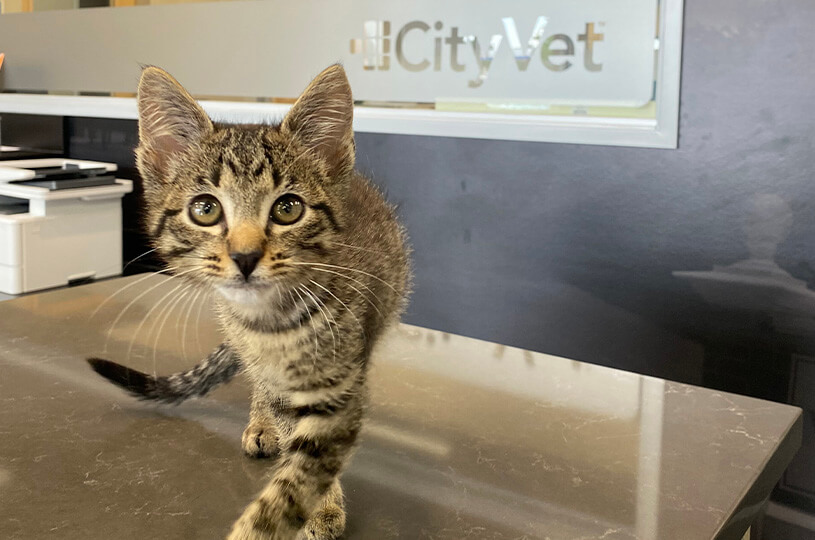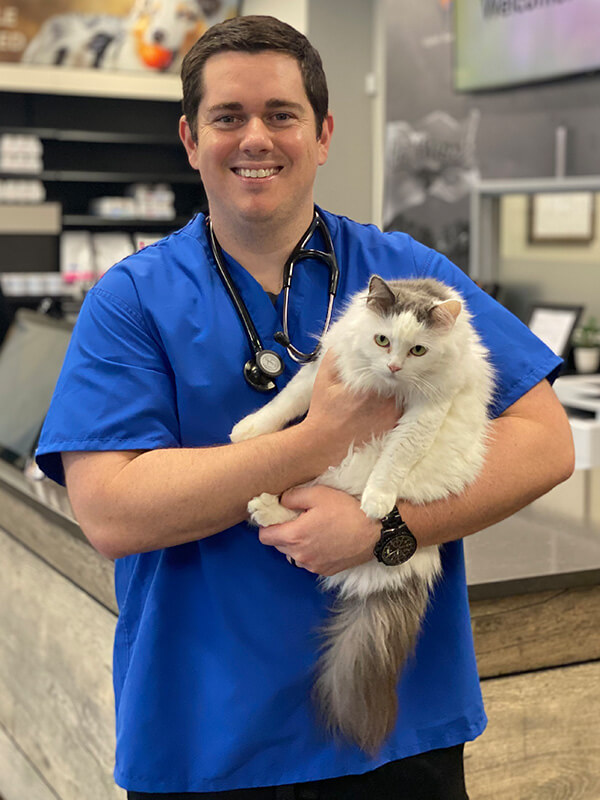Cats, like all animals, can be prone to certain diseases. If you’re a cat parent, it’s important to be aware of the most common diseases in cats and learn how to spot and prevent them. When ill, your feline companion may exhibit signs of stress, such as changes in weight, behavior, and appearance. By understanding some of the common health issues that can affect cats, you can take the necessary steps to ensure your cat stays healthy.

Cats are prone to upper respiratory infections, which are caused by viruses, such as feline herpesvirus and calicivirus and can sometimes have secondary bacterial infections. These infections can cause symptoms such as sneezing, runny nose, and eye discharge. Upper respiratory infections are highly contagious, so it’s important to keep your cat isolated from other pets and animals if they are showing symptoms. Veterinarians can best identify and recommend treatments that can help.
Just like humans, cats can also suffer from dental disease. This can lead to tooth decay and loss, bad breath, and even heart and kidney problems. Regular dental check-ups and cleanings can help prevent dental disease and keep your cat’s pearly whites healthy.

Hyperthyroidism is a common endocrine disorder that typically affects older cats. It is caused by an overactive thyroid gland which causes the body’s metabolism to speed up, resulting in weight loss, increased appetite, and hyperactivity. Treatment options include medication, surgery, and radioactive iodine therapy.
Diabetes is a common disease in felines, and is characterized by a deficiency in insulin, a hormone that regulates blood sugar levels. Symptoms of diabetes may present as increased thirst, increased urination, and weight loss. In most cases, this disease can be managed by insulin injections and dietary management.
This disease is caused by a virus and can be transmitted through close contact with other cats. Symptoms are wide and vairied, and can include changes in blood counts and increased susceptibility to other infections and certain types of cancer. Testing can be done easily by your veterinarian who can also recommend preventive measures (i.e. vaccination).
FIV is caused by a virus that attacks a cat’s immune system. This virus can be transmitted through bites and scratches. Lethargy, weight loss, and susceptibility to infection can all be symptoms of FIV. There is no cure, but early detection and management can help prolong your cat’s life.
It’s important to note that regular check-ups and vaccinations can help prevent many of these diseases. If your cat is showing any of the above symptoms or showing other signs that they are unwell, it’s a good idea to have them checked out by your veterinarian, who can administer proper diagnosis and treatment.